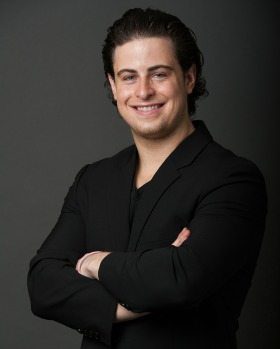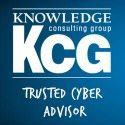
A series of surgeries to treat a lacrosse athletic injury and frustration about a lack of online resources providing recovery information for that injury were the straws that led 24-year old Grant Verstandig to drop out of Brown University and pilot Audax Health.
That was three years ago. The personal health management startup now has more than $21 million under its belt, according to a January SEC filing, and it’s making headlines for the way it is redefining personal health management.
Verstandig when he started the company sought a platform that would bring together individuals with medical questions so that they could share experiences and learn about different treatments, illnesses and conditions.
Zensey, Audax Health’s flagship product, does just that. The web-based social platform uses social and gaming technology to improve the health care experience by empowering users to manage their health through networking, gamification, individual challenges and rewards.
The Georgetown startup also touts two other products. The first, Battle by the Bay, lets users track their steps in the real world to compete on a virtual city by the bay course in San Francisco.
The second is a health assessment which provides users with personalized health care advice by empowering them to fill in questions about their lifestyles and habits in order to receive healthy tips tailored to them.
WashingtonExec recently spoke to Verstandig, the president and C.E.O. of Audax, about how he got big names like former Apple CEO John Sculley and former Aetna Chairman Jack Rowe to back him, what his friends thought when he dropped out, the value of networking, and privacy issues in health care.
Now in its third year, the company is past the “proof of concept” point, which Verstandig said will require it to scale its approach and offering in order to pave a way to do business more efficiently.
Add to that mix the inception of the Affordable Care Act — which has created consumer uncertainty in the industry — and it appears Audax Health does have some obstacles ahead of it.
WashingtonExec: As a young entrepreneur, how did you get people to take you seriously and believe in your vision for Audax Health? How did your early plans match up with how the business actually played out?
Grant Verstandig: I think because I was open and passionate. I couldn’t hide the fact that I had dropped out of college or that I had never run a business, but I had a sound vision, strong support, and to my benefit, my idea was well-timed: a seismic shift in legislation was going to force people to be more active participants in their own health care. I was proposing a solution by taking the social technologies we all know and love and making them apply to the health care industry.
Also, I first focused on getting movers and shakers in health and technology to believe in my vision. I am fortunate to have the support of some of the most renowned tech and health titans including John Rowe, former chairman of Aetna, Roger Ferguson, CEO of TIAA-CREF, and of course John Sculley, former CEO of Apple. When I was first starting out they taught me two very important lessons: build the right team for your company and learn to “fail fast.” These lessons are always in the back of the mind especially as Audax Health continues to grow and expand.
Inevitably, it took some time for those lessons to set in but there are always bound to be bumps along the way. I initially believed the best model would to be to pitch pharmacy benefit managers, and when it was not the right fit, my mentors persuaded me to pursue other options. Audax Health now focuses on working directly with healthcare insurance providers to provide Zensey to members.
WashingtonExec: What did your friends think when you dropped out?
Grant Verstandig: Not surprisingly, my friends and family were a little shocked especially given my limited experience in health care. But what initially seemed to be a weakness turned out to be my biggest strength: being an outsider to health care gave me the opportunity to have a fresh perspective, and I wasn’t biased or pigeonholed because of preexisting experiences with the industry. Today, that perspective is one of the most lauded aspects of Audax Health. Our entire team is made up of exceptional talent with backgrounds from various industries who lend their mixed experiences and expertise toward reinventing health care.
WashingtonExec: It seems making connections was what really helped you get off the ground in starting Audax. Is networking still a part of your strategy? What were some major hurdles you had to overcome?
Grant Verstandig: Like many entrepreneurs, networking is critical. I worked tirelessly that first year contacting potential leads, using LinkedIn to find connections, making hundreds of cold calls, and tapping any and all relationships with industry influencers.
The changes currently happening within the healthcare industry rely on the voices and expertise of the people who can help move it forward. Audax Health aims to be part of this conversation, so I certainly plan to continue to seek out industry influencers who believe in our mission.
Great companies are all about the people. As Audax Health continues to grow, I’ll continue cultivating my relationship with existing connections and networking with people who are interested in better health and a better health system.
WashingtonExec: Personal health is often a very private subject for individuals. How do you balance the thin line between providing personalized services while ensuring the confidentiality of user information? Does Audax Health sell user data to third parties?
Grant Verstandig: Privacy and security is our top priority at Audax Health. We’re not in this to sell consumer information to pharma companies. Our goal is to create innovative technologies that can help not only drive healthier lifestyles, but act a source for those looking for more personalized and catered information on their health.
To ensure privacy and security, we built Zensey to be entirely compliant with the rigorous health information privacy and use requirements of the Health Insurance Portability and Accountability Act (HIPAA). This means that we do not share data with third parties and can only access de-identified, aggregate information about users.
WashingtonExec: How you would describe your leadership style in three to five words?
Grant Verstandig: Decide, delegate, disappear.
WashingtonExec: Do you have any advice for other young entrepreneurs hoping to follow in your footsteps?
Grant Verstandig: Be coachable, but in the end, go with your gut. Venture Capitalists, industry experts and the like will give you advice and you should absorb what they have to say, but don’t let that advice make you lose sight of your vision. You are the expert on that vision and you are in control of seeing it come to fruition.
WashingtonExec: Do you see Washington, D.C. as a startup hub comparable to Silicon Valley?
Grant Verstandig: While I think it can be, I’d have to lean towards no for right now. Is D.C. on its way to becoming a hotbed for start ups? Absolutely. Especially with 1776, Revolution and others bringing capital, culture and expertise to the city. But we’re not quite there yet.
The problem is that D.C. is inherently risk-averse, and fundamentally, startups must be risk takers. Our counterparts in Silicon Valley have better mastered that approach, while in DC, entrepreneurs tend to follow the lead of the government and err too far on the side of caution.


